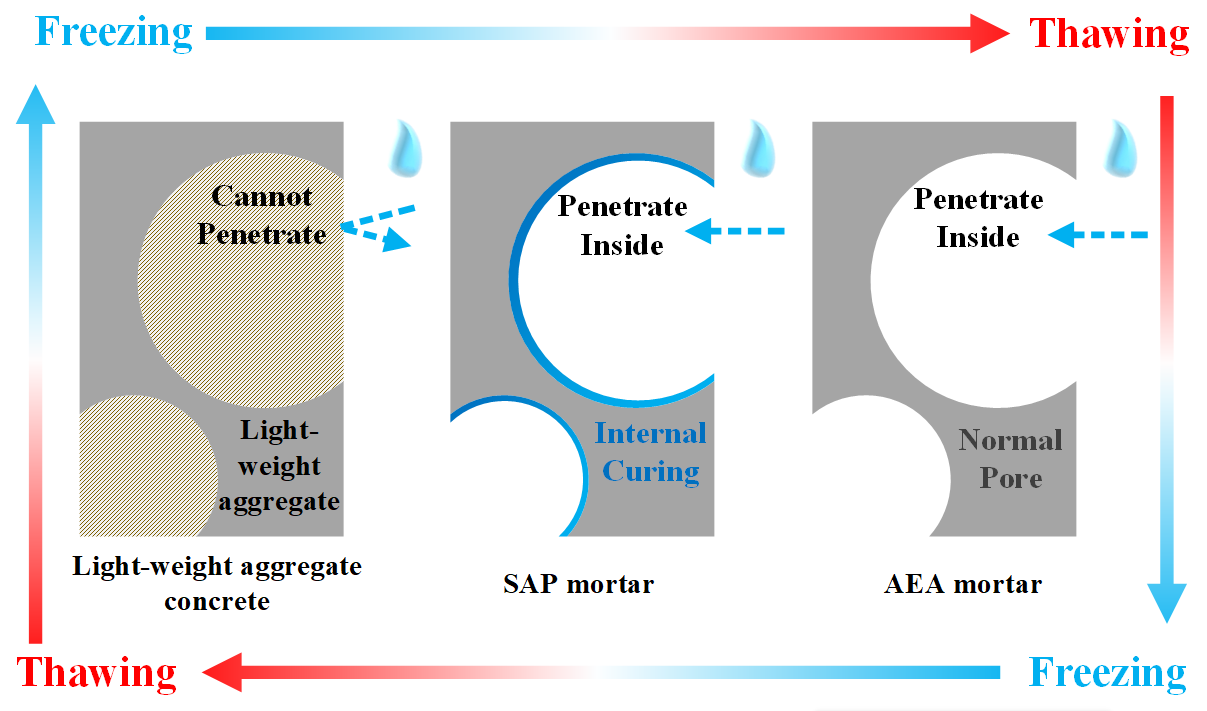 Open Access
Open Access
ARTICLE
Investigation on Thermal Insulation and Mechanical Strength of Lightweight Aggregate Concrete and Porous Mortar in Cold Regions
1
Ningbo City College of Vocational Technology, Ningbo, China
2
College of Water Conservancy and Hydropower Engineering, Sichuan Agricultural University, Ya’an, China
3
State Key Laboratory of Ocean Engineering, Shanghai Jiao Tong University, Shanghai, China
4
College of Civil Engineering and Architecture, Jiaxing University, Jiaxing, China
5
Department of Civil Engineering, Lanzhou University of Technology, Lanzhou, China
6
Department of Civil Engineering, College of Science, Nanjing University of Science and Technology, Nanjing, China
* Corresponding Author: Desheng Li. Email:
Journal of Renewable Materials 2022, 10(12), 3167-3183. https://doi.org/10.32604/jrm.2022.020265
Received 16 November 2021; Accepted 07 January 2022; Issue published 14 July 2022
Abstract
Thermal insulation is an important indicator to evaluate the construction material in cold region engineering. As we know, adding the industrial waste as lightweight aggregate or creating the pore inside the cement-based composite could make the texture loose, and the thermal insulating capacity of the material would be improved with this texture. Using these methods, the industrial by-product and engineering waste could be cycled in an efficient way. Moreover, after service the fragmented cement composites paste could be used as aggregate in the thermal insulating concrete again. While the porous texture is not favorable for the mechanical strength and long-term durability in a cold environment. To balance the above three requirements from two opposite directions, different processing methods were applied to create the thermal insulation concrete/mortar. Firstly, the organic/inorganic lightweight aggregate, including the Expanded Polystyrene (EPS), Expanded Perlite (EP), and Ceramsite (CRMST) particles, were applied to create the Lightweight Aggregate Concrete (LWAC). As the comparative tests, the expanded Superabsorbent Polymer (SAP) hydrogel and Air-Entraining Agent (AEA) were also introduced to create the porous mortar. The above concrete/mortar was tested in the normal state and under the Freeze-Thaw cycle to explore the engineering performance in cold regions. During the experimenting process, the thermal insulation, mechanical strength, and frost resistance of these cement-based composites were investigated, and an optimal thermal insulation concrete/mortar was determined.Graphic Abstract

Keywords
Cite This Article
 Copyright © 2022 The Author(s). Published by Tech Science Press.
Copyright © 2022 The Author(s). Published by Tech Science Press.This work is licensed under a Creative Commons Attribution 4.0 International License , which permits unrestricted use, distribution, and reproduction in any medium, provided the original work is properly cited.


 Submit a Paper
Submit a Paper Propose a Special lssue
Propose a Special lssue View Full Text
View Full Text Download PDF
Download PDF Downloads
Downloads
 Citation Tools
Citation Tools